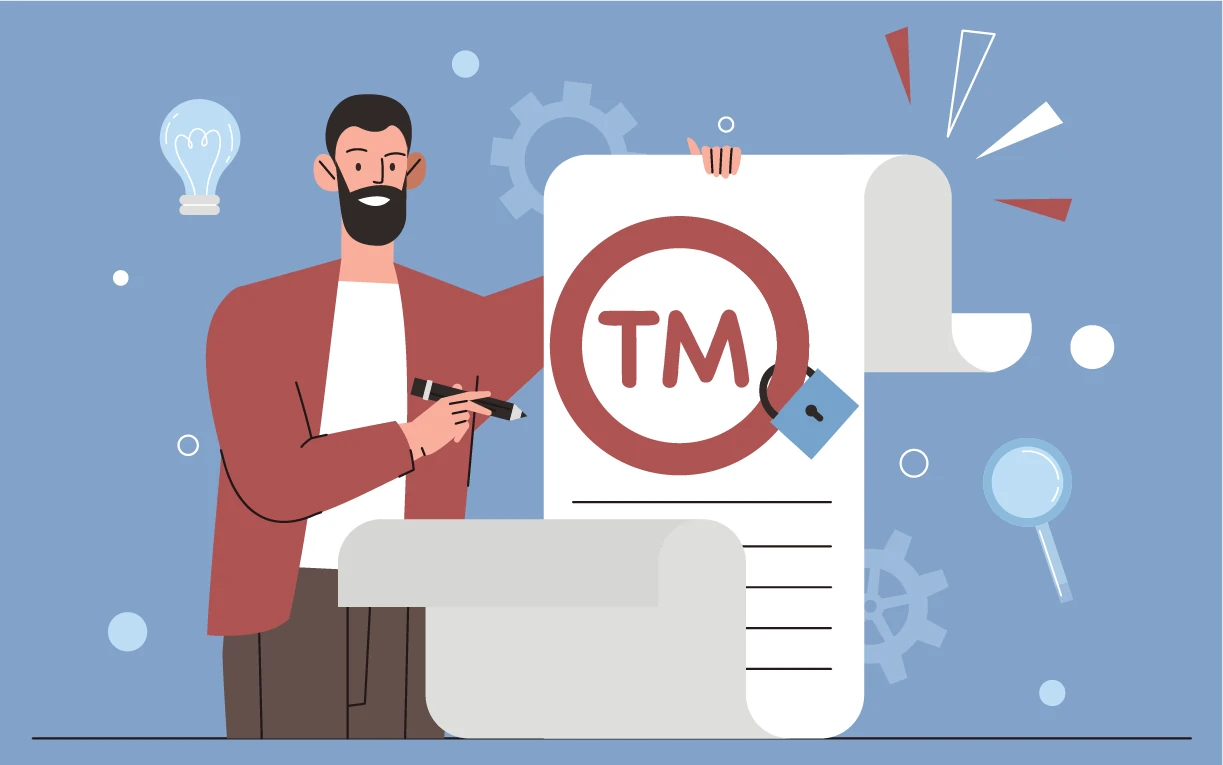
A trademark is a visible sign, such as a word, name, number, label, vibrant colors, or other combination of letters and numbers, that is used by companies to differentiate their services or products from similar goods or services generated by other firms. The Controller General of Patents, Designs and Trademarks, Ministry of Commerce and Industry, Government of India, keeps track of trademarks in India. Trademarks are registered under the Trademark Act of 1999, which gives trademark owners the right to sue for damages if their trademarks are infringed upon. Registered trademarks are a type of intellectual property that is used to protect a company's investment in a brand or symbol. A corporation must register its selected trademark since it will serve as a unique identifier.
Proposed trademarks that are identically or nearly identical to an existing registered trademark are not eligible for registration. However, a trademark cannot be registered if it is insulting, generic, untrustworthy, not unique, or contains expressly protected insignia, among other things.
The R symbol can be applied after the trademark registration process is completed, and the registration will be valid for ten years. Trademarks that are about to expire can be renewed on a regular basis by filing a trademark renewal application for an additional ten years.
In Delhi NCR and all other Indian cities, trademark registration is handled by KCS. We provide high-quality trademark services such as trademark registration, trademark search, trademark renewals, and patent registration, among many others.

Trademark registration is the process of registering visual symbols such as words, names, devices, labels, numerals, and so on. In India, trademark registration assists the applicant or trademark owner in securing his logo or trademark. Trademark registration also benefits from the avoidance of trademark duplication.
The simple method for obtaining trademark registration is first selecting a name, then doing a trademark search, and then filing an application for trademark registration. Then fill in the relevant documentation, such as the trademark is name or address. The trademark is then published in the Indian Trademark Journals once the application has been assessed. Finally, the trademark registration certificate is issued.
Once your business has grown to a certain degree, registering your logo provides a number of benefits. Investing a little time and effort will allow you to establish your authority over the logo (or even the language, sound, and images) in court, as well as numerous companies with comparable company types, which will be beneficial to any investor. The comparative name remains the same as before.
The key to trademark registration in India is to separate the two elements, which can either belong to the same category of trade/business or can be separated. Trademark registration allows the owner of a business or corporation to get a lot of power and benefits.
Infringement of a trademark or service mark is defined as the unauthorised use of a trademark or service mark in connection with goods or services.
Trademark registrations are specific to the goods or services described in them. The registrations might be for a specific product or service. They are also created under the class of products or services that they represent. As a result, the trademark registration will be valid for the whole category of products or services that it represents.
Yes, the authorities require applicants to use a Class III Digital signature to validate all of the papers they provide, including the trademark registration application. Our professionals will assist you with e-verifying all of your documents.
It is only good for a certain amount of time, namely 10 years. However, it is infinitely renewed. You just need to pay the trademark renewal charge once a year.
After the application is registered with the government, the trademark department assigns a TM number within 1-2 days of filing. After that, you can use the trademark symbol (TM) with your brand.
A trademark is an intellectual property that is awarded to a term or logo, whereas copyright ensures that your original material, such as books, music, films, songs, or software, is protected.
